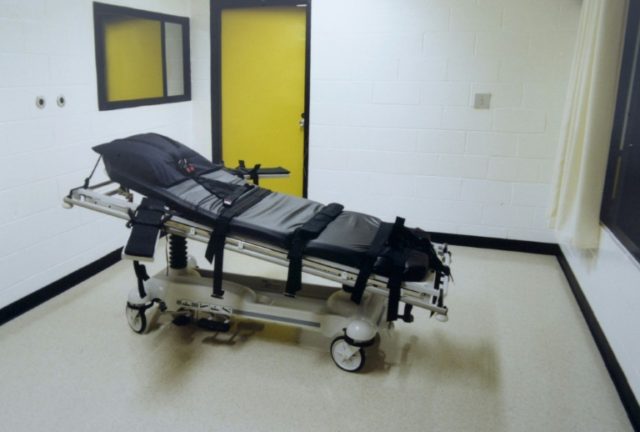Washington (AFP) – Condemned to die for murder by a jury that included a man who questioned whether black people have souls, African-American Keith Tharpe is to be executed on Tuesday.
Tharpe’s lawyers have launched last-ditch efforts to secure the suspension of the execution on the basis that racism played a “pivotal role” in decision.
They also argue that Tharpe should be spared due to mental health problems. If the execution is not stayed, he will be put to death by lethal injection at 7:00 pm (2300 GMT) in the US state of Georgia.
Tharpe was found guilty of the 1990 murder of his sister-in-law Jaquelin Freeman, which took place as she drove to work with his estranged wife.
According to prosecutors, Tharpe also raped his wife.
As required by Georgia law, the jury unanimously decided to impose the death penalty.
– ‘Two types of black people’ –
In 1998, an NGO that provides free legal assistance to detainees interviewed members of the jury that imposed the sentence.
One of them was a white man named Barney Gattie, who according to court records said that: “There are two types of black people: 1. Black folks and 2. Niggers.”
“Because I knew the victim and her husband’s family and knew them all to be good black folks, I felt Tharpe, who wasn’t in the ‘good’ black folks category in my book, should get the electric chair,” Gattie said.
The juror also said that study of the Bible had led him to wonder “if black people even have souls.”
Gattie said that he had not used the word “nigger” as an insult, despite its extremely racist connotation and his having signed an affidavit in which his comments were reproduced.
Aware of the remarks potential damage to their case, prosecutors then persuaded him to renounce them in another affidavit and said that he was drunk when he first spoke.
Sharyn Ifill, president of the National Association for the Advancement of Colored People’s Legal Defense and Educational Fund, said that Gattie’s views mean he could not have made an impartial judgement in Tharpe’s case.
– Favorable legal precedents –
“A juror who doubts whether black people have souls cannot make a reasoned, moral judgment about whether a black defendant such as Mr. Tharpe should face the ultimate sanction,” Ifill said.
In several cases in recent years, the US Supreme Court has established that racial prejudice has no place in the American legal system.
In February, the high court suspended the execution of a Texan who had been cast during his trial as being potentially more dangerous because he was black.
The Supreme Court also ruled in favor of a black man in May 2016 who was sentenced to death by a jury of 12 white people from which black jurors were excluded.
Tharpe’s fate will be decided in light of this recent jurisprudence.
Georgia’s State Board of Pardons and Paroles rejected a clemency appeal on Monday, but other decisions are expected Tuesday.

COMMENTS
Please let us know if you're having issues with commenting.